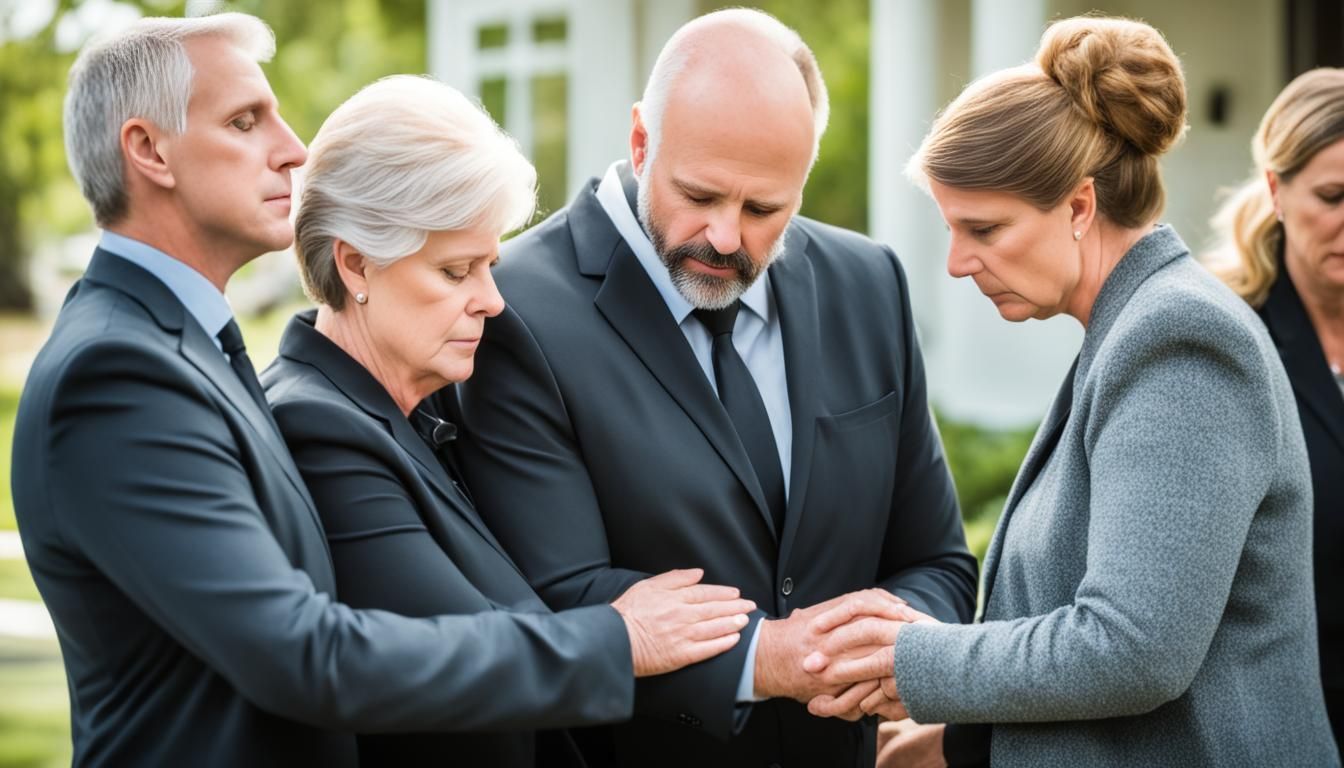Organizing End of Life Documents: Easy Steps
Organizing End of Life Documents: Easy Steps
When life's final chapter closes, will your family find peace in neatly arranged papers, or a confusing puzzle of your assets? This profound question highlights the importance of an estate planning checklist and organizing legal paperwork. These steps ensure your last wishes are clear and within reach. Edwards Funeral Service, recognizing the importance and complexity, offers guidance on end of life organization tips for a graceful estate handover.
Kindness is often shown in the planning details. Assigning a durable power of attorney, or setting up a living trust now, lightens your family's burden during mourning. But what steps are vital for a solid end-of-life plan? With professional help, you can create a plan that protects your legacy and supports your family through future challenges.
Key Takeaways
- Creating a comprehensive estate planning checklist is the first step towards organized end-of-life preparation.
- Understanding and organizing legal paperwork is central to guaranteeing that final wishes are honored.
- Effective end-of-life plans require regular revisions, ensuring they mirror current situations and intentions.
- Edwards Funeral Service provides critical assistance through resources and advisory for the bereaved.
- Keeping loved ones informed about the location of critical documents alleviates stress during difficult times.
- Enabling subscription to obituary alerts can help communities stay connected with recent passings.
Preparation of Essential Legal Documents for End of Life
Getting ready for the end of life involves more than legal steps. It's about caring for those you leave behind. It includes making a will, durable power of attorney, and living trust. These steps make sure your wishes are known and easy to find.
A will is key for handling your estate after you're gone. It covers who gets what and who looks after dependents and pets. A durable power of attorney for finances is equally important. This person will manage your money if you can't. A living trust allows for a smooth handover of your assets guided by someone you trust.
Advance directives like living wills are crucial too. They state your medical treatment preferences. And a healthcare proxy will make decisions for you if you can't. It's smart to talk about these with doctors and family. This way, everyone knows and respects your medical wishes.
| Document Type | Purpose | Benefits |
|---|---|---|
| Will | Distributes estate and addresses caregiving. | Ensures wishes are legally documented. |
| Durable Power of Attorney for Finances | Manages financial affairs. | Financial decisions are made by a trusted person. |
| Living Trust | Manages and distributes property and funds. | Avoids probate and allows for managed distribution. |
| Advance Directives | Details medical treatment preferences. | Medial wishes are respected when one cannot communicate. |
Keeping your important legal documents safe is key. Tell a family member or close friend where they are. This ensures they're found when needed. It helps avoid stress during hard times.
Steps to Organize End of Life Documents
Organizing legal paperwork for end-of-life needs careful planning. This guide helps sort important documents. Using an estate planning checklist ensures peace of mind for you and your loved ones.
Gathering Personal Information
Start by gathering all key personal information for your estate planning checklist . Include your full name, Social Security number, and birth details. Also, gather crucial documents like birth certificates and marriage records. Include employment and military records too.
Designating Power of Attorney
Choosing a power of attorney is key for end-of-life planning. It means selecting someone trusted to manage your finances or health decisions. These decisions ensure your wishes are followed carefully.
Creating Advance Directives
Drafting advance directives is essential. These documents state your medical care wishes. A living will covers treatments you want or don't want. A healthcare proxy lets someone make decisions if you're unable to. Regular updates keep these documents current.
Securing Physical and Digital Documents
In today's world, securing end-of-life documents both physically and digitally is crucial. Keep physical copies safe in fireproof safes or bank deposit boxes. Store digital copies in secure cloud or encrypted drives. Make sure trusted people know how to access them.
Communicating with Loved Ones and Professionals
End-of-life planning also requires talking with family and advisors. Discussing healthcare, financial, and legal wishes makes fulfilling them easier. It helps to let professionals talk to your chosen caregivers early on.
Following these steps reduces uncertainties about your final wishes. It ensures your interests are protected and gives peace of mind to everyone.
Conclusion
Starting to organize your end of life documents can bring you peace. It also helps those you care about. Working with Edward Funeral Service makes this easier, covering every important part. This organization breaks down into simple steps, planning a future that shows your wishes and helps your family in hard times.
Organizing documents is more than just getting paperwork ready. It means carefully storing and updating your records. A key part of end of life planning is telling your family where these documents are and why they matter. This action gives peace to you and your loved ones, making future management smoother.
Edward Funeral Service is here to help with these important estate planning steps. They respect your family's harmony and your final wishes. Making sure your loved ones know and understand these details helps honor your life. It also keeps the family serene after you pass. With a solid plan, your legacy will be as you wish, bringing calm and respect every step of the way.
FAQ
What should be included in an estate planning checklist?
Your estate planning checklist should have a few key items. Start by making a will. Pick a durable power of attorney for both your finances and health care. You might need a living trust.
Get advance medical directives like living wills and health care proxies done. Organize all your personal, financial, and health details. Make sure to tell someone you trust where these documents are.
How do I begin organizing my legal paperwork for the end of life?
Start by gathering your key personal documents. This includes things like birth certificates and marriage records. Make sure your will is up to date.
Then, store these papers safely and tell a trusted person where they are. It's smart to also have digital backups.
What are some end of life organization tips to keep in mind?
Some good tips are to regularly update your documents, especially after big life changes. Keep them in a secure spot. Talk openly with your family about your wishes.
Give professionals permission to discuss your care with chosen people. Signing up for obituary alerts in your community can also help.
What are the steps to organize end of life documents?
Begin by collecting all your important personal information. Choose someone as your power of attorney for both finances and health care. Draft living wills and healthcare proxies.
Keep both hard and digital copies of documents in a safe place. Talk openly with your family and professionals about your wishes for the end of your life.
How do I prepare end of life documents?
Work with a legal expert to get your will and healthcare directives right. Gather all your personal records. Keep your beneficiary designations updated.
All your documents should reflect your latest wishes. Store everything securely, make copies, and list where they all are for trusted people.
Why is sorting important documents for end of life planning critical?
Sorting important documents helps smoothly transfer your assets. It ensures your health care wishes are followed. This provides clear guidance for your loved ones in tough times.
It cuts down confusion, delays, and legal issues after you're gone. This makes things easier for everyone involved.










